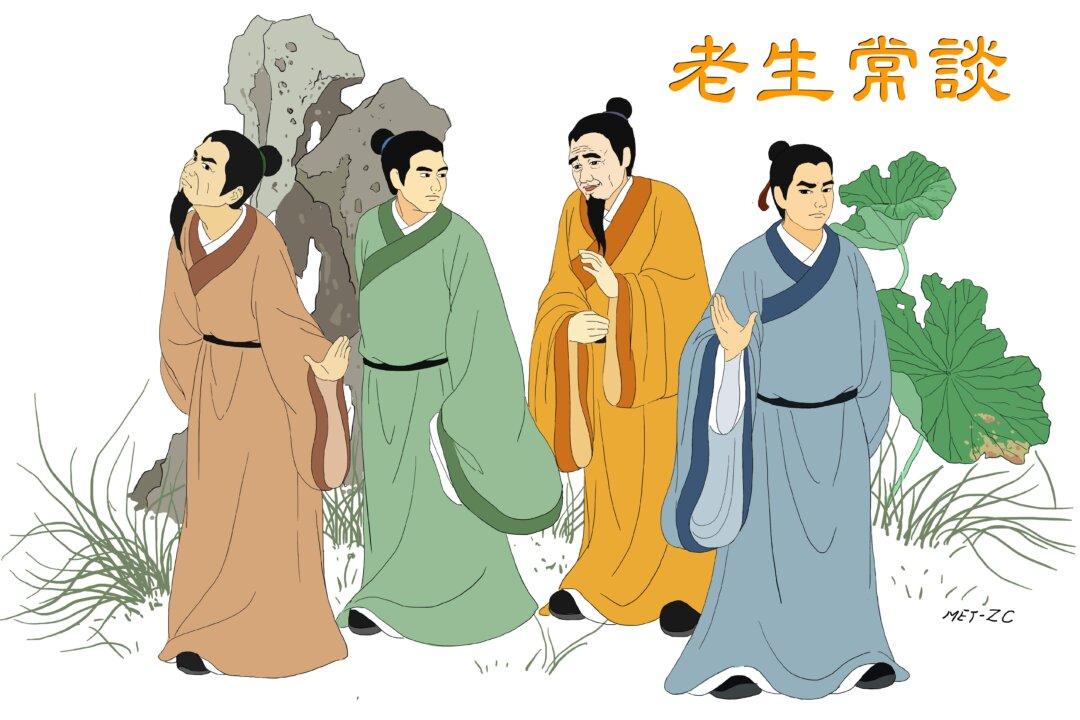The idiom老生常谈 (lǎo shēng cháng tán) means what is often said by or the usual discourse from an old scholar. It refers to repeating the same words or to playing the same tune again and again.
This idiom was based on a story from the San Guo Zhi (三國志), or Records of the Three Kingdoms, a Chinese historical text of the late Eastern Han Dynasty (A.D. 25–220) and the Three Kingdoms period (A.D. 220–280) of China.
Guan Lu (管輅) (A.D. 209–256) was a famous fortune-teller during the Three Kingdoms period. He studied the Dao and, by the age of 15, knew the Yi Jing, or Book of Changes, very well. He could foresee people’s fate.
One day, He Yan and Deng Yang, two ministers of the state of Wei, visited Guan Lu. He Yan asked Guan to tell their fortunes.
“I have had the same dream for a few days now,” He Yan said. “I dreamed some flies fell on my nose. I tried to drive them away, but they refused to leave. What does it mean? When I can become a prime minister?”
Guan saw that He Yan’s soul was in a dark valley and he knew his fate. However, Guan also knew he would invite a lot of trouble if he told exactly what he saw.
Guan Lu thought for a while, then said: “You, sir, have come to high honors and wield great powers, but those who hold you in esteem are few and those who fear you, many. You are not careful walking in the way of good fortune. Now, the nose is an eminence. If an eminence retains its characteristic, it thereby remains honorable.
“But do not flies gather to foul objects and do not the lofty fear a fall? I would wish for you to give of your abundance for the good of the poor, to avoid walking down the wrong road. Then, indeed, you may reach the highest dignity.”
Deng asked about his fate as well, and Guan also wished him to give of his abundance for the good of the poor, to avoid walking down the wrong road. Guan advised him to be kind to others to avoid misfortune.
Hearing Guan’s answers, Deng said, “Your answers were irrelevant to our questions. We are not here to listen to the platitudes of an old man.” They did not believe Guan’s words and left.
Soon afterward, Sima Yi (A.D. 179–251) took control of the Wei State in a coup d’etat. He Yan and Deng Yang were both killed along with their regent.
Later on, the expression “the platitudes of an old scholar” became an idiom to describe the same thing repeated over and over.
